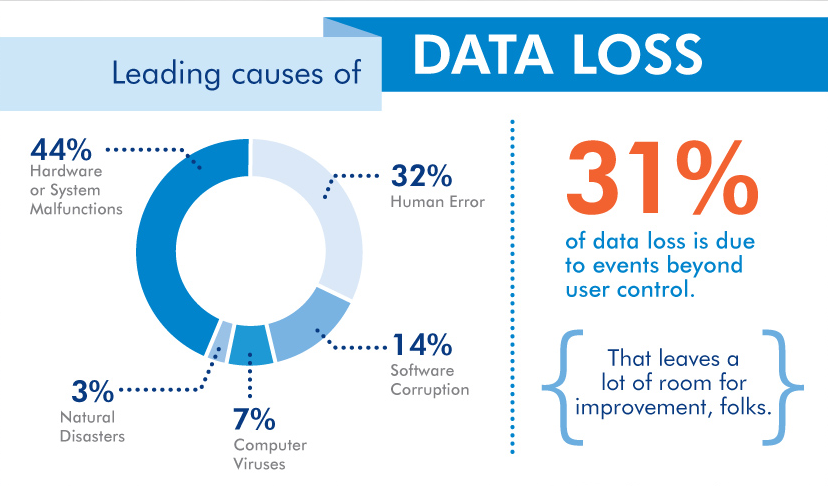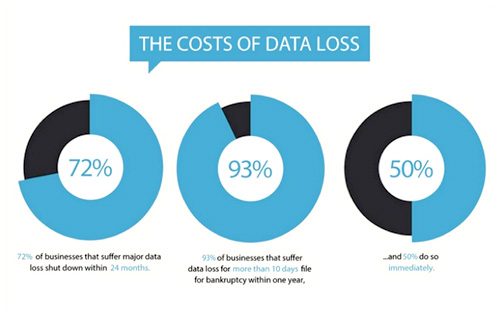
Data loss refers to the unintentional or accidental destruction, corruption,
or loss of data stored on digital devices or systems. It occurs when data becomes
inaccessible, unreadable, or permanently deleted, leading to its irretrievable
loss.
Data loss can happen due to various reasons, including hardware or software
failures, human errors, malware or ransomware attacks, natural disasters, power
outages, theft, or intentional deletion.
Data loss can have significant consequences, including financial
losses, legal issues, operational disruptions, reputational damage,
and the loss of valuable or sensitive information. It highlights
the importance of implementing data backup strategies, using data
recovery techniques, and maintaining robust security measures to
minimize the risk of data loss and ensure data integrity.

The cost of data loss can vary widely depending on several factors, including the size and type of organization, the extent of the data loss, the nature of the data, and the industry in which the organization operates. Here are some of the potential costs associated with data loss.
- Lost productivity: When data is lost, it can result in downtime and interruptions to business operations. Employees may be unable to access critical information, leading to decreased productivity and delayed projects.
- Data recovery and restoration: Attempting to recover lost data can be a complex and costly process. It may require specialized expertise and the use of data recovery services or software.
- Re-creating or re-collecting data: In some cases, lost data may need to be re-created or re-collected, which can be time-consuming and resource-intensive.
- Financial impact: Data loss can have direct financial implications, such as lost sales, missed business opportunities, or contractual penalties. It can also result in the loss of intellectual property, trade secrets, or sensitive customer information, leading to potential legal and regulatory costs.
- Reputational damage: Data breaches or data loss incidents can erode customer trust and damage a company's reputation. Rebuilding trust and recovering from reputational damage can be challenging and may require additional investments in marketing and public relations efforts.
- Regulatory non-compliance penalties: Depending on the industry and geographical location, organizations may be subject to data protection regulations and face penalties for failing to safeguard customer data adequately.

It is difficult to estimate an exact cost of data loss as it
varies from case to case. However, studies and surveys have shown
that data loss incidents can be extremely costly for organizations,
ranging from thousands to millions of dollars, considering the
direct and indirect expenses associated with data recovery,
business disruption, legal actions, and reputational damage.
To mitigate the financial impact of data loss, organizations
should invest in robust data backup solutions, implement effective
data security measures, and develop a comprehensive incident
response plan to minimize the risk and consequences of data loss
incidents.
Visit us on Facebook
for tips and tricks on how to manage data
loss and other security awareness topics.
Give us a call at
(860) 701-0058
if you have further questions on this topic.








